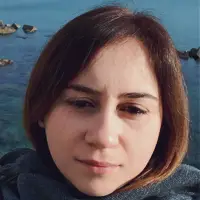
Annalisa Pelizza – Sociologist of Technology
Annalisa Pelizza is a sociologist of technology focusing on the intersection of political structures and technological development. Her research explores how digital infrastructure and data governance shape political power and influence policy-making within the EU.
Wouter Van Rossem – Political Scholar
Wouter Van Rossem is a political scholar specializing in European governance and institutional frameworks. His work examines the political dynamics of the EU, and he is particularly interested in how technological innovations are integrated into political decision-making.
Yoren Lausberg – Software Developer
Yoren Lausberg is a software developer with expertise in building digital political and social analysis tools. He has worked on developing platforms that facilitate political transparency and citizen engagement across EU member states.
Claudio Coletta – Ethnographer
Claudio Coletta is an ethnographer whose research focuses on technology's social and cultural impact in European political contexts. He has conducted fieldwork across various EU member states, exploring how digital platforms influence civic engagement and the relationship between citizens and political institutions.
Catia Prandi – Communication and Political Scholar
Catia Prandi is a scholar specializing in political communication and digital media. Her research investigates how political messages are shaped and disseminated in the digital age, focusing on the role of social media and online platforms in European political discourse. Catia has worked on EU-funded projects to improve communication between governments and citizens.
Ombretta Ingrasci – Sociologist of Technology
Ombretta Ingrasci is a technology sociologist who focuses on the relationship between digital infrastructure and political accountability. Her work explores how technological systems can be designed to enhance transparency and trust in European institutions. Ombretta has advised policymakers on integrating technological solutions to improve governance and public trust.

Catia Prandi
Communication and Political Scholar at PC Ship
Catia Prandi is a scholar specializing in political communication and digital media. Her research investigates how political messages are shaped and disseminated in the digital age, focusing on the role of social media and online platforms in European political discourse. Catia has worked on EU-funded projects to improve communication between governments and citizens.

Ombretta Ingrasci
Sociologist of Technology at PC Ship
Ombretta Ingrasci is a technology sociologist who focuses on the relationship between digital infrastructure and political accountability. Her work explores how technological systems can be designed to enhance transparency and trust in European institutions. Ombretta has advised policymakers on integrating technological solutions to improve governance and public trust.

